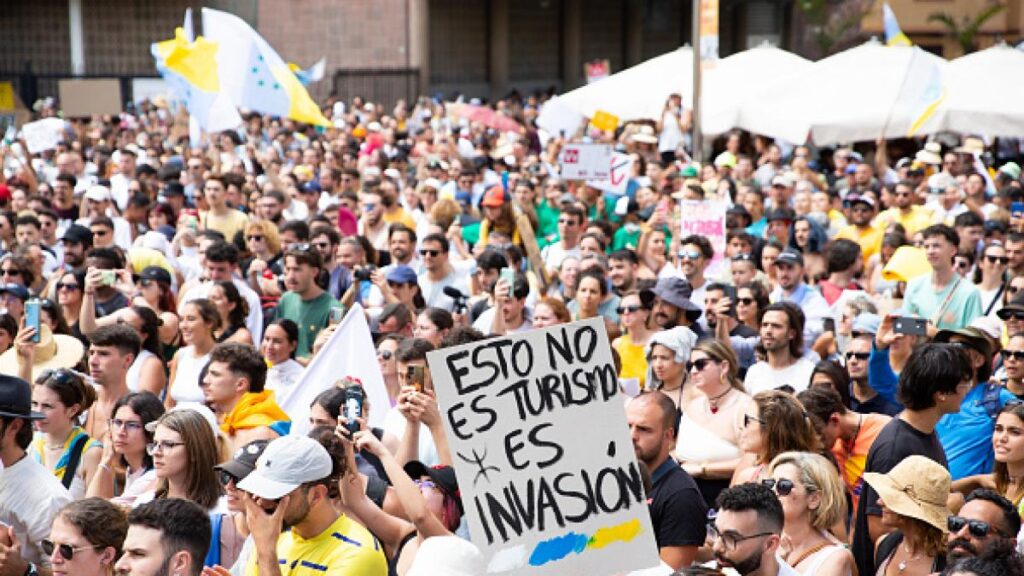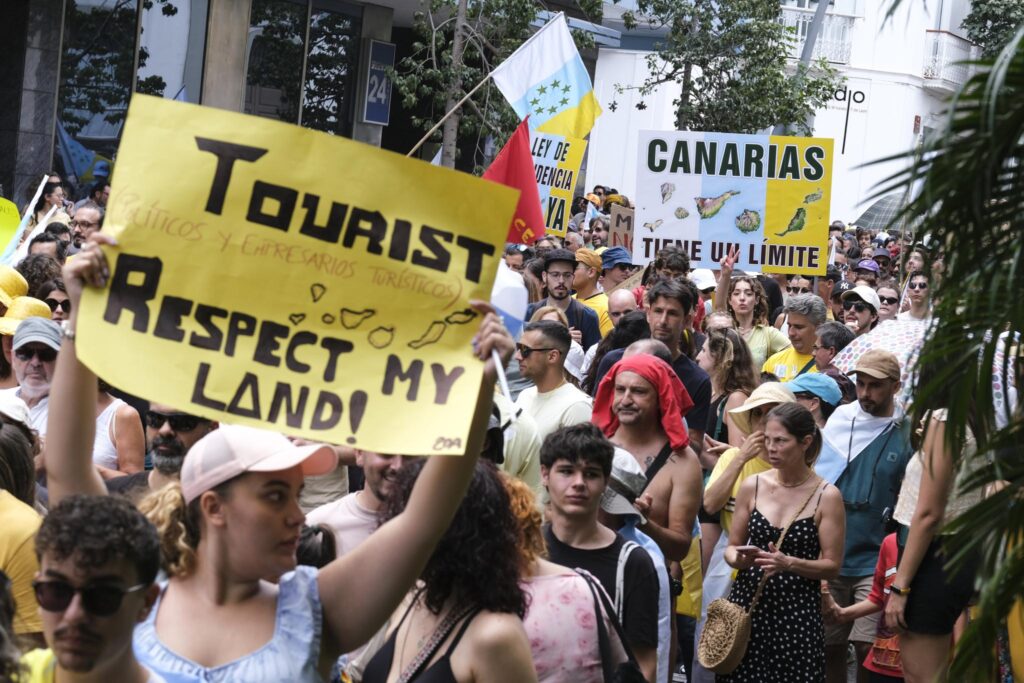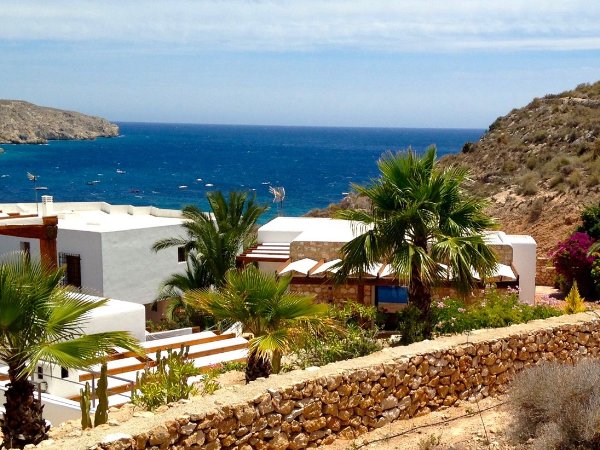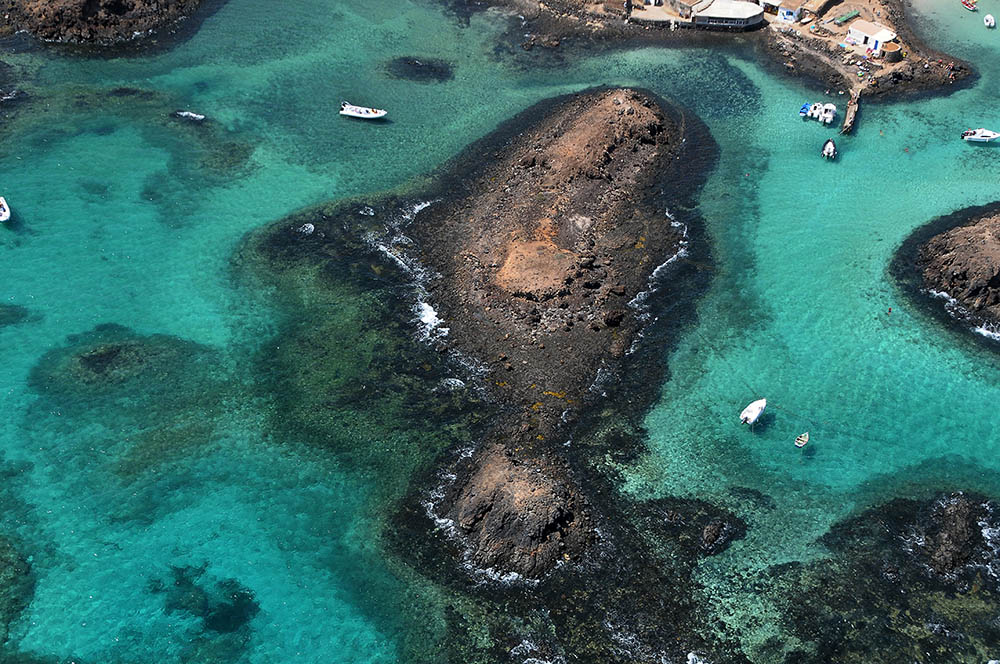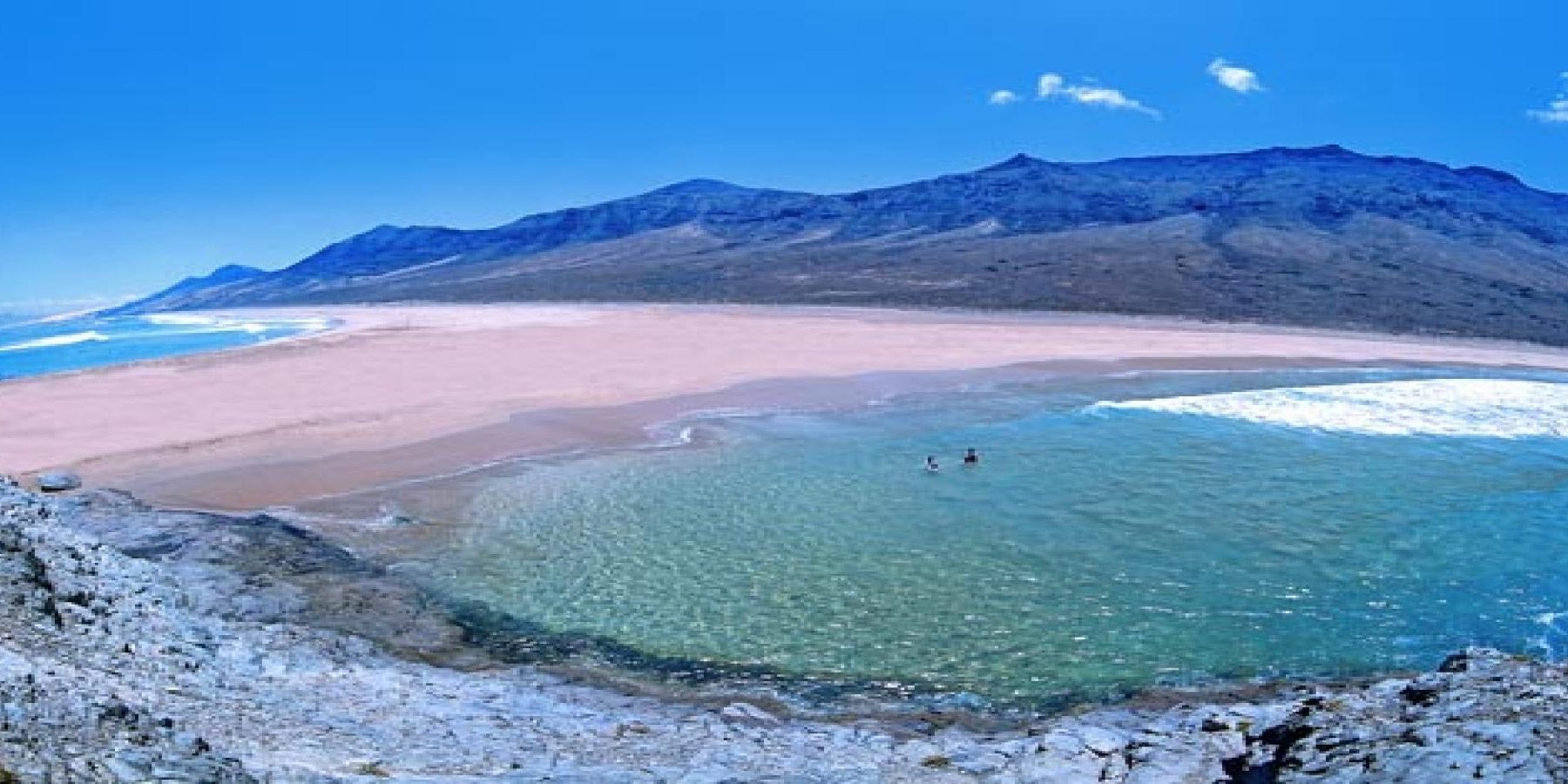In April, the Canary Islands have witnessed a series of protests against mass tourism, expressing concerns and demands regarding the impact of this industry on the region. These protests reflect a growing unease among local residents about the balance between tourist development and the preservation of the natural environment and quality of life.
What’s happening in the Canary Islands?
Relevant fact:
The political class highlights the record increase in tourist arrivals to our islands and the resulting economic benefits. However, this boom does not necessarily translate into significant improvements for all citizens. Despite these achievements in the tourism sector, we still face significant challenges in terms of poverty and social inequality. More than 35% of the population lives at risk of poverty and social exclusion, with over 13% in extreme poverty. The unemployment rate remains at a worrying 20%.
The protests in the Canary Islands against mass tourism have been a response to various perceived problems related to tourism development in the region. Among the most prominent points of these protests are:

1. Sustainability Concerns:
- Local residents express concerns about the negative environmental impact of mass tourism in the Canary Islands.
- Overexploitation of natural resources, pollution, and environmental degradation have become urgent issues that require attention.
Pressure on Infrastructure:
- The increase in tourism has exerted significant pressure on the existing infrastructure in the Canary Islands, including public services such as transportation, water, and sanitation.
- Local residents point out the need to improve infrastructure to ensure sustainable tourism development that does not compromise the quality of life of the population.
Displacement of Local Residents:
- The expansion of tourism has led to an increase in housing costs, resulting in the displacement of local residents from their traditional communities.
The Canary Islands have experienced the highest housing price growth rate among Spanish regions.
- There is growing concern about gentrification and the loss of cultural identity as a result of the uncontrolled growth of the tourism sector.
Precarious and Seasonal Employment:
- Despite the growth of tourism, many local residents face precarious and seasonal employment in the industry.
- There is a demand for the creation of stable and dignified jobs that benefit the local community and not just the interests of tourism companies.
Conclusions: The protests in the Canary Islands against mass tourism reflect a call to rethink the tourism development model in the region. It’s evident that measures are needed to ensure environmental sustainability, social equity, and preservation of cultural identity. Open dialogue among local residents, authorities, and tourism stakeholders is essential to find solutions that benefit everyone involved and promote responsible and sustainable tourism in the Canary Islands.
